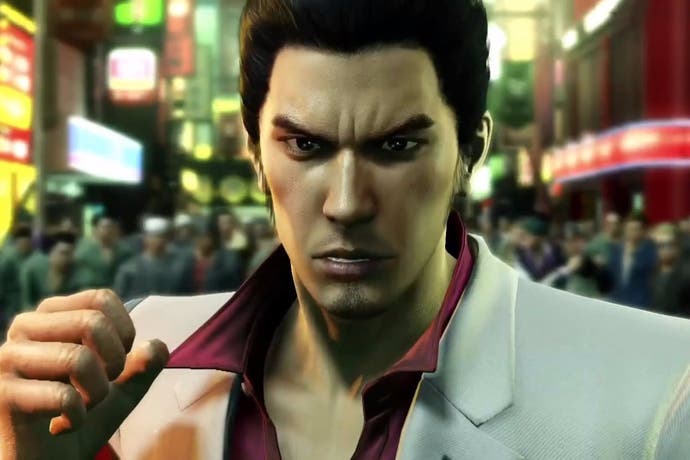Yakuza Kiwami is the next best thing to a Shenmue remake
Digital Foundry on how the PS4 remake dramatically improves on the PS2 original.
Way, way back in early February 2016, Digital Foundry ventured to the Japanese PlayStation Store and picked up a digital copy of Yakuza Kiwami. We hoped that Sega would consider bringing this excellent PS4 remake to the West and just over 18 months later, it's finally happened. To mark the occasion, we've decided to republish our original analysis. If you've enjoyed the Yakuza titles, or want to check out the series for the first time, we reckon it's well worth a look.
Ten years and millions of units later, the Yakuza series - or Ryu ga Gotoku as it's known in Japan - has risen to become one of Sega's most popular franchises. It's a series that draws from the glory days of Sega's developmental expertise with the original team formed by members of Amusement Vision and Smilebit. In many ways, it's one of the few games left from the publisher that feels like it could have originated during the Dreamcast era.
Unfortunately, the series hasn't quite taken off in the West to the same degree and as a result, a good number of titles in the series remain exclusive to the Japanese market - including the game we're examining here, Ryu ga Gotoku Kiwami - or Yakuza Kiwami, to give it our own English translation. However, things are looking up for Western fans of the series with Yakuza 5 having been released late last year and Yakuza Zero announced for North American release. Between these recent releases and the success of PlayStation 4 worldwide, the chances for localisation have never been higher.
Yakuza Kiwami isn't an entirely new game, however, it's a full-on remake of the original PS2 release. In that sense, it seems like a perfect fit for the Western audience as it gives players a chance to start over from the series' beginning without dealing with the often complex backstory. The games have always done a good job of catching players up to the present, but it can still be daunting to jump into the fourth or fifth game in a series with no prior knowledge. This would be a fantastic way to re-introduce the series to gamers on PlayStation 4.
This isn't the first time that the original game has seen the light of day on modern consoles though. The PS2 originals were remastered and released in Japan on both PlayStation 3 and the Wii U a few years back - but Yazuka Kiwami takes things to a whole new level. It's a game built on the experience gained over the past ten years of working on the franchise and it makes for a vastly superior package.
There are a large number of changes to discuss here but the first major improvement is obvious from the get-go - resolution. The original PS2 game operates at a mere 512x448 interlaced, which appears highly pixelated on modern displays. On PlayStation 4, we see a bump up to a full 1920x1080 with post-process anti-aliasing and a high level of texture filtering, further improving image quality. With minimal shader aliasing and clean lines galore, Yakuza Kiwami has a certain crispness to it that leaves a strong impression.
The underlying technology actually stems from the engine first created for Yakuza 3, though it has undergone a great number of improvements since that release. With that in mind, it should be noted that Yazuka Kiwami is actually available on PS3 as well - though at a lower resolution and frame-rate. It's really the jump to 1080p60 that makes all the difference here.
One of the first things that sticks out on first playing the game is how closely the remake sticks to the original game's cut-scene presentation. The rigging, camera work and animation are all identical in these scenes to the point where everything just lined right up when we stacked the two captures. Matching a ten-year-old game doesn't necessarily seem like a great idea, but the animation was pretty good on PS2 and the massive increase in detail transforms each scene. It's also important to remember that many of the cut-scenes on PS2 were pre-rendered movies while on PS4, the majority of scenes are now rendered in real-time.
Both cut-scenes and gameplay benefit tremendously from an increase in detail as well. As a PS2 title, the original Yakuza relied heavily on simple patterns and basic shading. After all, with so little memory available, complex texture work was out of the question. In comparison, surfaces on PS4 appear much sharper with materials, such as cloth and skin, now featuring a high level of fine detail.
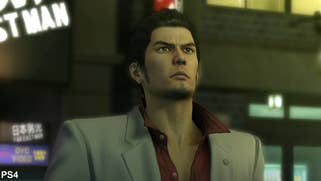
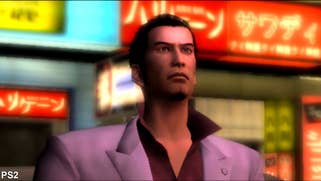
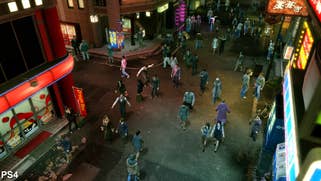
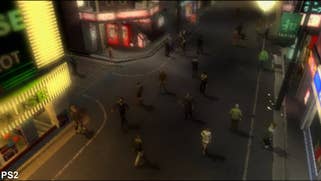
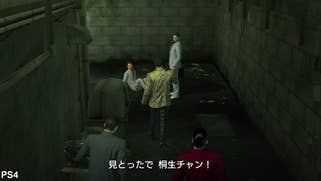
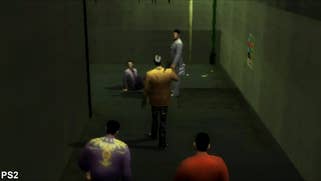
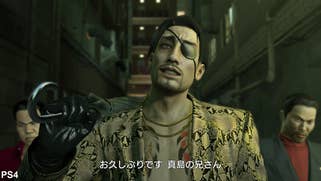
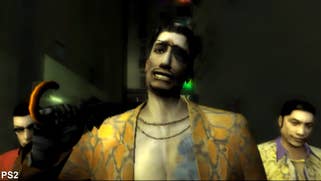
Model complexity is also bumped up dramatically with vastly improved characters and environments throughout. In addition, lots of new effects and techniques are included, enhancing the atmosphere. For example, screen-space reflections help wet pavement shine, while additional post-processing enhances the cinematic tone. Depth of field is improved significantly here and is even used during gameplay for near-field objects. Of course, this isn't an entirely new effect - after all, PS2 was the first game console to deliver titles with a genuine depth of field blur, but the more modern effects in the remake are of a much higher quality.
Of course, as a remake we already expected significant visual improvements, but there are technical improvements beyond this that genuinely improve the game. The most important change lies in the camera and loading systems. On PS2, Yakuza makes use of a fixed camera system which changes based on player positioning. However, unlike some games with this system, each camera switch represents a full scene change - the game loads in each new scene as the player moves between camera boundaries, it isn't all one open city. This results in noticeable hitching when moving from area to area.
On PS4, Yakuza Kiwami uses an adjustable camera like other more recent games in the series. You can look around with the right stick just as you'd expect, which is great, but the real benefit lies in the newfound seamlessness of the experience. In order to work with the new camera system, large chunks of the game world must be loaded at any point which helps facilitate smoother exploration while creating a more satisfying sense of place. The constant loading pauses on PS2 can really pull you out of the experience and the remake completely fixes it.
That said, the free camera isn't always optimal - many situations drop the player into tight corridors when camera manipulation becomes difficult and unwieldy. There are select areas which switch to a fixed camera but it's hit or miss. Still, it's ultimately preferable to the limited control seen on PS2.
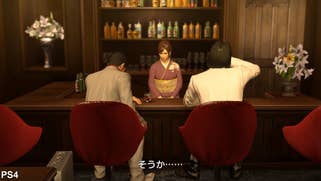
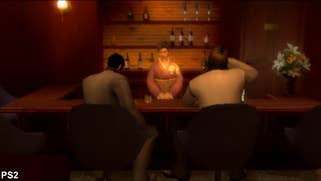
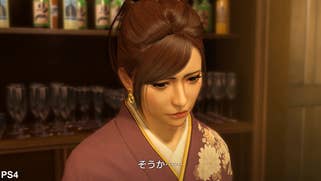
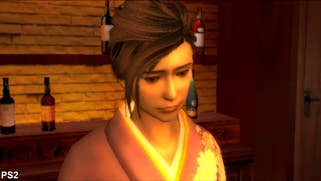
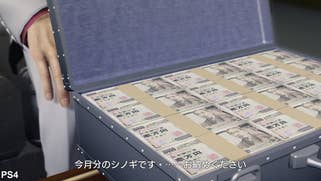
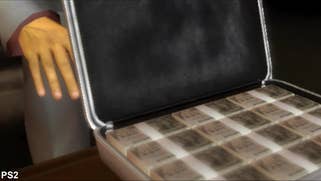
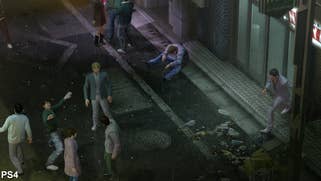
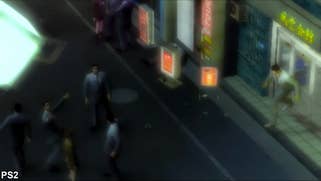
While wandering those streets you are bound to end up in a fight or twenty and it's here that we see the most significant improvement of all - the elimination of loading screens. In its original form, players are forced to sit through a near constant barrage of these loading screens before each and every battle. This becomes tedious, especially when dealing with street fights that can break out at any moment. The original is bogged down regularly by these 20-30 seconds loading interludes between every battle.
Thankfully, the game is able to quickly transition in and out of battle without breaking the flow of the game on PlayStation 4. We still get the same title cards but the game never cuts to a black screen, instead simply whipping the camera around before feeding directly into combat. This has a tremendously beneficial impact on the overall experience, making for a much more playable overall game.
Combat is further enhanced by the game's performance - Yakuza Kiwami operates at a full 60 frames per second during gameplay, while cut-scenes are limited to 30fps. In comparison, the original version of the game runs at just 30fps with plenty of drops - and this was during the age of PlayStation 2, when the volume of games running at 60fps was much higher than today.
Performance isn't quite perfect on PS4 though, with certain areas of the city dropping frames and introducing torn frames along the top portion of the screen. This isn't common enough to become an issue, thankfully, and the overwhelming majority of the experience holds a very solid 60fps. Either way, it's a leap over the 30fps with slowdown level of performance we see on PS2.
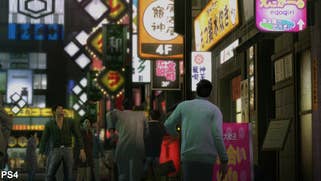
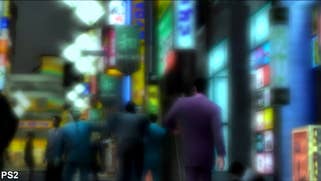
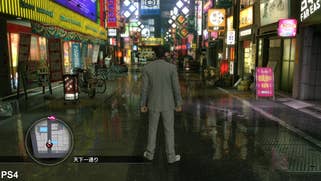
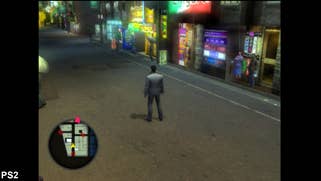
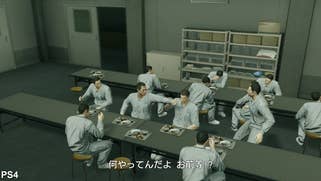
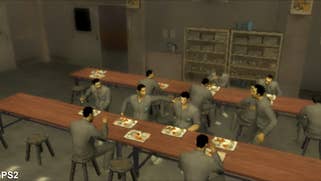
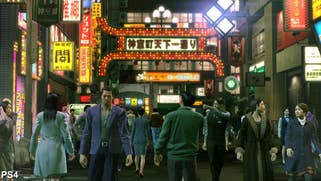
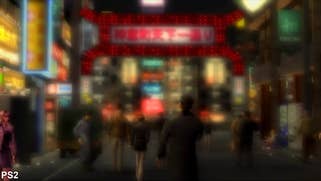
Beyond the technology powering the game, there's a lot of new content included as well. Cut-scenes are often expanded upon while entirely new scenarios are introduced. You never know when new content will pop up during gameplay. The extra story sequences do a great job of fleshing out details that were previously unclear. Plus, fan favorite Majima Goro receives a lot of extra screen-time - though be prepared for some genuine weirdness here.
The audio has also received a lot of attention. While much of the script is the same, all of the voice acting has been re-recorded at a higher fidelity while the ambient sounds and musical score are improved even more. The surround sound mix does a great job of pulling you into the world. You can even choose between two different fonts and save your game anywhere, which is convenient indeed coming from the phone based save system of the original.
In this day and age, we see a lot of remasters and remakes hitting the shelves. It's often a great way to attract a new audience while bringing back original fans to experience these titles anew. However, these projects aren't always successful with technical problems or a lack of new content sometimes resulting in a less than stellar experience.
That's not the case with Yakuza Kiwami. This is a solid remake that manages to bring together many of the best elements from the series while retelling the original story. It's a great game for newcomers and long-time fans alike and it shines beautifully on PlayStation 4. We can only hope that, sometime in the not so distant future, both this and Yakuza 6 are announced for Western release. It certainly feels like the series is starting to gain more appreciation worldwide, after all.
